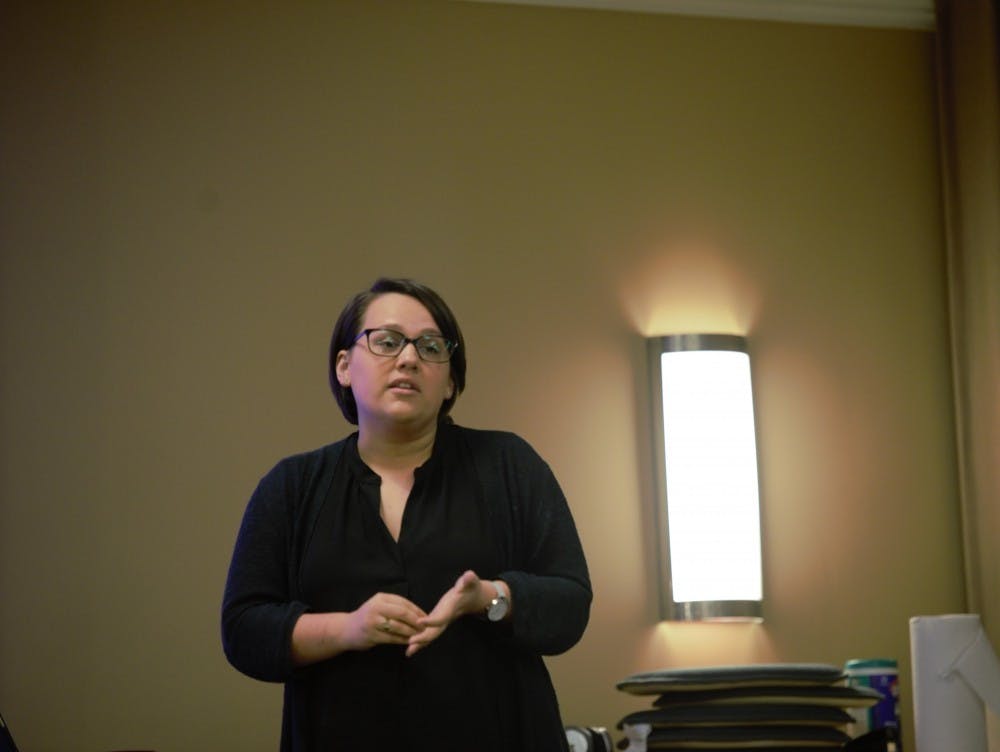The University Judiciary Committee heard from guest speaker Shelby Gibson, the programs coordinator and case manager for the Office of the Dean of Students, during its meeting Sunday. Gibson spoke about how the relationship between ODOS and the UJC is beneficial to the wellness of all students involved with UJC, as deans are typically a resource for accused students but also report students’ cases to UJC.
Gibson’s presentation covered the role of ODOS on Grounds, which is to support and guide students with everything from homesickness to roommate conflicts. The deans are also able to connect students with mental health resources, as well as basic need insecurity and food insecurity.
“The thing about our office that is challenging sometimes is that unless you as a student have faced a really difficult time, you don’t really know that the resource exists,” Gibson said.
The UJC, as the governing body of the University Judicial System, hears cases about violations of the 12 Standards of Conduct, which refer to student misconduct that violate the law — such as drinking in dorms or owning a fake ID. Most cases are referred by ODOS, but according to Shannon Cason, a fourth-year College student and UJC chair, there has not always been such an emphasis on using ODOS as a resource for students in distress.
“Beforehand there wasn’t necessarily a focused relationship,” Cason said. “So we’re trying to change that.”
Cason said UJC received the same presentation by Gibson last year. This presentation was given in light of a recent and troubling trend of fewer cases being reported. In the 2016-17 school year, 77 cases were heard, according to statistics reported by the UJC. Comparatively, there were only 33 cases heard between April 2018 and April 2019.
“In the past couple years, we have noticed a downward trend in the amount of cases that are getting reported to the UJC,” Cason said. “Part of that could be because there is a lack of relationship between ODOS and the UJC.”
Having different events with ODOS, such as speaker presentations like Gibson’s and a brunch with the deans to be hosted in November, helps the two organizations by getting them “on the same page again with who we report and who we don’t report,” Cason said.
Dean turnover is another reason Cason cites for the downward trend in reported cases. Those with 30 or 40 years of experience will report more often because they are more familiar with the system, while those who are new may not know exactly how it works.
In addition to new deans, the local police’s internal system has also changed. The system is now more difficult for deans to use and cross-reference if those who got in trouble go to the University, according to Cason. This has led to it being harder for deans to keep track of and report students.
The downward trend in reporting could also be due to student engagement in case-creating behavior merely declining, but Cason is doubtful.
“I definitely don’t think it’s because there are less cases, we all say ‘first-years don’t get any smarter, people just report them less,’” Cason said.
One concern with the increased relationship between ODOS and UJC is the maintenance of student confidentiality, according to Gibson. However, the UJC still maintains its status as being entirely student-run and both Gibson and Cason say that there will be no interaction with ODOS-provided support and the sentencing a student gets from their trial.
“We will support the student and answer questions, but that’s really all we are going to do,” Gibson said.
The adjudication is still up to the UJC. Through this relationship with ODOS, the UJC is now being encouraged to guide students in need of support during trial to various different resources. Cason said this goes towards the UJC mission to promote overall student and community wellness.
“Our whole point with the sanctioning is to get people to think about their total health,” Cason said. “We want it to be a reflective process at the end so that they can become a slightly better person at the end of it.”







